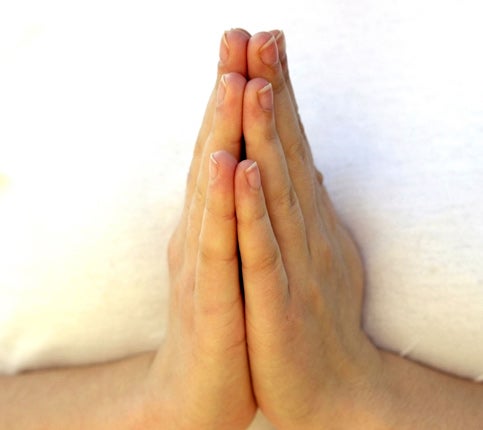Religious retreats can change the chemicals in your brain, discover scientists
'The retreat made me realise the need to re-prioritise aspects of my life'

Your support helps us to tell the story
From reproductive rights to climate change to Big Tech, The Independent is on the ground when the story is developing. Whether it's investigating the financials of Elon Musk's pro-Trump PAC or producing our latest documentary, 'The A Word', which shines a light on the American women fighting for reproductive rights, we know how important it is to parse out the facts from the messaging.
At such a critical moment in US history, we need reporters on the ground. Your donation allows us to keep sending journalists to speak to both sides of the story.
The Independent is trusted by Americans across the entire political spectrum. And unlike many other quality news outlets, we choose not to lock Americans out of our reporting and analysis with paywalls. We believe quality journalism should be available to everyone, paid for by those who can afford it.
Your support makes all the difference.It was a “singularly transformative” experience that helped one Christian reconnect with God, develop greater empathy and even enabled them to cry.
Going on a religious retreat has long been said by the participants to be a significant moment in their lives, but now scientists have discovered that it may have a physical effect on the brain.
Scientists in the US studied the effects of attending a week-long retreat involving silent contemplation and prayer in accordance with the teachings of Saint Ignatius of Loyola, founder of the Jesuit order.
In what is believed to the first study of the neurophysiological effects of going on a retreat, the researchers scanned the brains of 14 people who took part, all Christians aged from 24 to 76, before and after the trip.
They found there were “significant reductions” of five to eight per cent in the binding of two neurotransmitters associated with positive emotions, dopamine and serotonin, in two parts of the brain.
Dopamine is involved in cognition, emotion and movement, while serotonin is associated with emotional regulation and mood.
Writing in a paper in the journal Religion, Brain & Behaviour, the researchers said: “The findings, although preliminary, suggest that participating in a spiritual retreat can have a short-term impact on the brain’s dopamine and serotonin function, and that this might relate to various emotional and spiritual measures.”
But they added the study “perhaps raises more questions than answers”.
“For example, the spiritual retreat we studied has multiple elements including meditation, silence, prayer, self-reflection, and personal spiritual guidance,” the paper said.
“Some of these practices, meditation in particular, have been studied more extensively in recent years and have been found to elicit a number of neurophysiological and subjective changes.”
For at least some of those taking part, it was clear they had felt the experience had been beneficial.
“The seven-day retreat I participated in was singularly transformative and helped me connect more easily to Spirit and re-connect to God,” one said.
“Also, before the retreat, I would definitely say that I had a limited range of emotion, particularly not feeling very empathetic and not able to cry.
“But, during the retreat, I felt the complete opposite and was much more in touch with a wide range of emotions.”
Another suggested they planned to change significantly.
“The retreat made me realise the need to re-prioritise aspects of my life, particularly putting God and Spirit before work,” the person said.
One of the researchers, Dr Andrew Newberg, of Thomas Jefferson University in Philadelphia, said the study’s findings went some way towards explaining what was happening, but more research was needed.
“Since serotonin and dopamine are part of the reward and emotional systems of the brain, it helps us understand why these practices result in powerful, positive emotional experiences,” he said.
“Our study showed significant changes in dopamine and serotonin transporters after the seven-day retreat, which could help prime participants for the spiritual experiences that they reported.”
“Our team is curious about which aspects of the retreat caused the changes in the neurotransmitter systems and if different retreats would produce different results. Hopefully, future studies can answer these questions.”
However the researchers stressed the small-scale study was “preliminary” and cautioned they had not used a control group.
Join our commenting forum
Join thought-provoking conversations, follow other Independent readers and see their replies
Comments